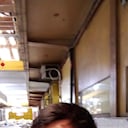In the Mandarin Chinese language, how do you say "Hello"?
Translated as "hello", "ni hao" is an everyday greeting in Mandarin Chinese. It is pronounced "nee how"; "ni" has a rising tone, and "hao" has a tone that falls then rises. The first part of the phrase (ni) means "you", and the second part (hao) means "good", which may trick English-speaking people into thinking the term means "how are you".
Mandarin Chinese is one of the most widely-spoken languages in the world, with around 955 million speakers. It is the official language of the People’s Republic of China and Taiwan. Over 70% of the Chinese population speak Mandarin but there are also several other dialects, including Cantonese, Hunanese, Min, Gan, Wu, and Hakka.
Chinese dialects are among the oldest in the world, dating back at least 6,000 years. Evidence of the written Chinese language dates back to the Shang dynasty (1766-1123 BCE), indicating the Chinese written language is over 3,000 years old.
Mandarin started to develop during the 10th and 11th centuries in northern China. The dialect gradually spread through literature. Eventually many people from all Chinese regions could read and understand the same language.
More Info:
www.tripsavvy.com



